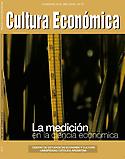The Role of Information in Society
Keywords:
SOCIETY OF INFORMATION, ROLE OF THE STATE, SOCIETY, FREEDOM OF EXPRESSIONAbstract
This article purports to create and enhance consciousness about the essential role of information in society’s conformation and evolution. It does so by providing foundations to the contribution of information and expression freedom, and of public provision of trustworthy data, in search of supreme values of life and progress in society, such as security, freedom, and equity. In the first part, the author explains that information has great social value because it contributes to economic development and constitutes a public good. Then, it explains the problems caused by disinformation and finally, analyzes the role of the State in the process of information broadcasting.Downloads
References
Akerlof, George (1970) “The Market for ´Lemons´: Quality Uncertainty and the Market Mechanism”, Quarterly Journal of Economics [QJE] 84:3, p. 488-500.
Alberdi, Juan Bautista (1854) “Sistema económico y rentístico de la
Confederación Argentina según su Constitución de 1853.” Edición de la
Escuela de Educación Económica y Filosofía de la Libertad, 1979.
Benedicto XVI (2009) Encíclica “Caridad en la verdad”, Roma.
Blasco Garma, Enrique (2005) La riqueza de los países y su gente. Lumiere.
Brennan, Geoffrey y Buchanan, James M. (1985) The Reason of Rules. Constitutional Political Economy, p. 116. Cambridge University Press.
Bruni, Luigino y Zamagni, Stefano (2004) Economia civile. Efficienza, equitá, felicitá pubblica. Il Mulino.
Campbell, Donald E. (1995) Incentives. Motivation and the Economics of Information, p. 2. Cambridge University Press [CUP].
CEPAL (1958) “El desarrollo económico en Argentina.”
Coloma, Germán (2001) “Análisis Económico del derecho.” Ciudad
Argentina.
Dagnino Pastore, José María (1998) La cambiante Nación. Academia de Estrategia
Dagnino Pastore, José María (2004) Puntos de vista sobre federalismo.
Dagnino Pastore, José María (2006) “La organización territorial de la actividad económica”. Anales, Academia Nacional de Ciencias de Buenos Aires.
Dagnino Pastore, José María (2008) “Causas institucionales de la crisis económica mundial”, Informe economía e instituciones 1:5, Noviembre. Departamento de Economía, Facultad de Ciencias Económicas y Sociales, UCA.
Foulger, Davis (2004) Models of the Communication Process.
http://foulger.info/foulger/davis/research/unifiedModelOfCommunication.htm. February 25.
Fukuyama, Francis (1995) Trust. The Social Virtues and the Creation of Prosperity. Free Press, NY. En español (1996) Confianza. Atlántida.
Hayek, Friedrich A. (1945) “The Use of knowledge in Society”, American Economic Review [AER] 88; p. 519-30. Hayek, Friedrich A. (1973) Law, Legislation and Liberty, p. 14. University of Chicago Press.
Hirschman, Albert O. (1970) Exit, Voice and Loyalty, p. 30-43. Harvard University Press [HUP].
Hobbes, Thomas (1651) The Leviathan, Or, Matter, Form and Power of a Commonwealth Ecclesiastical and Civil, London.
Katz, Elihu (1957) “The Two-Step Flow of Communication”, Public Opinion Quarterly 21, p. 61-78.
Kreps, David M. (1990) A Course in Microeconomic Theory, p. 72-86; p. 577-660. Princeton University Press.
Krugman, Paul R. (1991) Geography and Trade. Leuven University Press and Massachussets Institute of Technology [MIT] Press.
Kungl, Vetenskapakademien (2001) The Sveriges Rijsbank Price in Economic Sciences in Memory of Alfred Nobel 2001. Information
to the Public. Nobelprize.org.
Lasswell, Harold Dwight (1948) ”The Structure and Function of Communication in Society”, en Bryson, Lyman (editor) The Communication of Ideas, p. 37-51. Institute for Religious and Social Studies, NY.
Lorenzetti, Ricardo (2009) citado en Ventura (2009).
McCall, John J. (1970) “Economics of Information and Job Search”, QJE 84, p. 113-26.
McLuhan, Marshall (1964) Understanding Media. Gingko Press.
Markowitz, Harry M. (1952) “Portfolio Selection”, Journal of Finance 7, p. 77-91.
Mueller, Dennis C. (2003) Public Choice III, p. 563-96. CUP.
Nagurney, Anna (2002) Network Economics: An Introduction.
http://supernet.som.umass.edu/austria_lectures/fintrosl.pdf
Nash, John Forbes (1950) “The Bargaining Problem”, Econometrica 18, p. 155-62. (1953) “Two-person Cooperative Games”, Econometrica 21, p.128-40.
Nozick, Robert (1974) Anarchy, State and Utopia. Basic Books, NY.
Olson, Mancur (1965) The Logic of Collective Action. HUP.
Ortega y Gasset (1923) “El tema de nuestro tiempo.” Revista de Occidente, Madrid.
Otter, Thomas y Cortez, Mónica (2003) “Economía de la información”, p. 18. Konrad Adenauer Stiftung.
Palacios, Alfredo Lorenzo (s.f.) Libertad de prensa. Claridad.
Putnam, Robert D. (1995) “Bowling Alone: America´s Declining Social Capital”, Journal of Democracy 6: p. 65-78.
Rawls, John (1971) A Theory of Justice. HUP.
Rees, R. (1985) “The Theory of Principal and Agent”, Bulletin of Economic Research: 37:1, p. 3-26 y 37:2, p. 75-97.
Rosen, Sherwin (1981) “The Economics of Superstars”, AER 71:5, p. 845-58.
Samuelson, Paul A. (1954) “The Pure Theory of Public Expenditure”, Review of Economics and Statistics 36:4, p.387-9.
Smith, Adam (1776) An Inquiry into the Nature and Causes of the Wealth of Nations.
Sola, Juan Vicente (2004) “Constitución y economía”, p. 803-27. LexisNexis Abeledo Perrot.
Spence, Michael A. (1973) “Job Market Signaling”, QJE 83:3, p. 355-77.
Stigler, George J. (1961) “The Economics of Information”, Journal of Political Economy 69:3, p. 213-25.
Stiglitz, Joseph E. (1988) Economics of the Public Sector, p.71-80. Norton, NY.
Shannon, Claude E. A. (1948) “Mathematical Theory of Communication”, Bell System Technical Journal 27: July, p. 379-422; October, p. 623-56.
Ventura, Adrián (2009) “Lorenzetti: ´La libertad de prensa es esencial´”, en La Nación (2009).
Wiener, Norbert (1948) Cybernetics: or Control and Communication in the Animal and the Machine. Wiley, NY.
Williamson, Oliver E. (1975) Markets and Hierarchies, Analysis and Anti-Trust Implications. Free Press, NY.
Downloads
Published
How to Cite
Issue
Section
License













